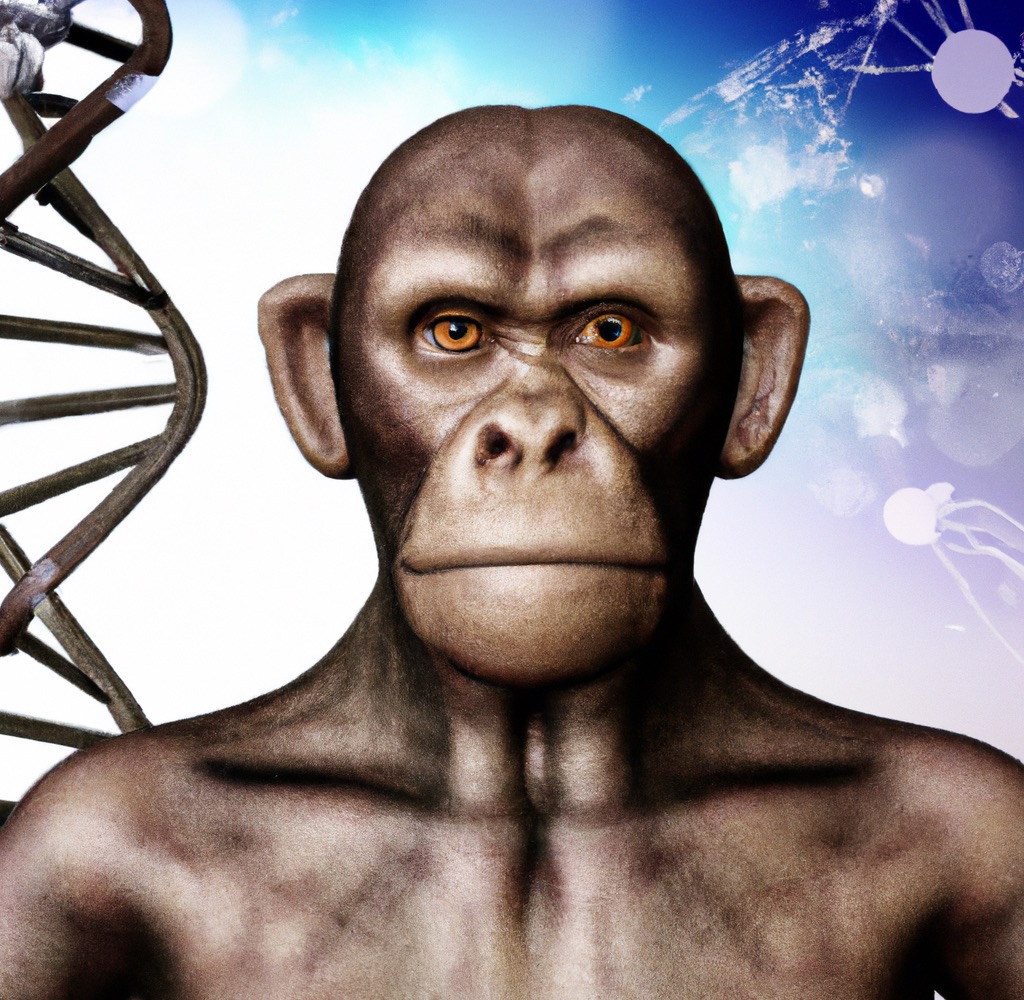Written by GPT-3, images by DALL·E 2
In a stunning reversal of previous scientific thinking, a new study has pushed the dawn of man back to the 5,000,000 year mark.
The study, conducted by a team of international scientists, found that the earliest known human ancestors actually date back nearly 10 times further than previously thought.
The findings, published in the journal Nature, suggest that the human lineage split from that of apes much earlier than previously believed.
This new study will have far-reaching implications for our understanding of human evolution. It suggests that the earliest humans were living in a very different world than we are today, and that the pace of human evolution was much slower than previously thought.
The study was conducted by analyzing the genomes of modern humans, chimpanzees, gorillas, and monkeys. The team found that the human genome is more closely related to the genomes of gorillas and chimpanzees than previously believed.
This finding suggests that the common ancestor of humans, gorillas, and chimpanzees lived around 5,000,000 years ago, which is nearly 10 times further back than the previous estimate of 500,000 years ago.
The implications of this study are sure to be the subject of much debate in the scientific community in the months and years to come.
This is an AI-generated article created from a futuristic New York Times headline written for Kubrick’s 2001: A Space Odyssey. GPT‑3 wrote the main text from a prompt based on the headline, and any additional fact boxes were prompted using related phrases. DALL·E 2 was similarly used to make the article’s images. The fake ads use AI‑generated photos and slogans.

